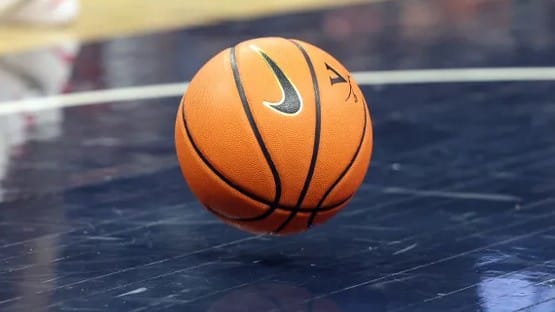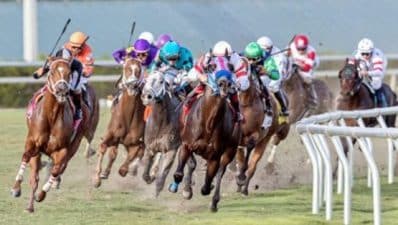
[email protected]
The presumed number-one quarterback, Peter Lalich, is busted for underage possession of alcohol. Then one of the incoming starters on the offensive line, Will Barker, is among two UVa. players picked up for stealing beer from a nightclub on The Corner.
And that was just last week’s news. The news over the weekend was that senior cornerback Mike Brown won’t be back after a checkered career at the University of Virginia that included three arrests. And who can forget the immediate aftermath of the Gator Bowl, when the man who was supposed to be entering his third year as starting quarterback, Jameel Sewell, was among four players dismissed from the team for academic reasons, a list that grew to five with the spring departure of stalwart defensive end Jeffrey Fitzgerald.
To be fair, it’s far from being the case that this kind of thing only happens in Charlottesville. Virginia Tech had a run of troubles in the early part of this decade. Penn State is going through its own issues of this nature right now. Coaches and athletics and university administrators across the country are forever on watch in the win-at-all-costs atmosphere that we’re in right now.
“I don’t think you necessarily have to compromise academic standards in order to be able to have a good program and do the right things in that regard. But somewhere along the line we got the idea that you can’t do both, that you can’t recruit smart kids and still be able to field a good team. Every time we do that, because we’re so visible, we’re sending a message, and it’s not necessarily a good one,” said John Gerdy, a former professional basketball player who is now an accomplished sports educator and author of books on the role of sports in contemporary American society, including the well-regarded Sports: The All-American Addiction.
Gerdy is there with me that we need to look at stories like the one involving UVa. football in the proper context, and that the context is broader than any one athlete or team or particular school, even.
“These kids are put under a microscope, and a lot of things that happen with athletes, if a normal student does it, you hardly ever hear about it, but if an athlete does it, it’s on the front page. That’s one part of this, the scrutiny of athletes,” Gerdy said. “But considering that scrutiny is there, schools have to be really extra careful about the athletes that they’re bringing in. What’s their profile in relation to the normal student body? Do they fit in? Or are we just bringing them in because they can win games and generate revenue? It’s a tough balancing act for the school, but there’s so much attention on the student-athletes that you have to be careful about who you bring in to make sure that they’re legitimate fits there.”
Dave Czesniuk, the director of operations at the Center for the Study of Sport in Society at Northeastern University in Boston, said it has to start a lot earlier than when coaches are making decisions on which recruits to bring in. “Youth leagues, community leagues – it has to be a bookend approach,” said Czesniuk, a former student manager and assistant basketball coach at Marist College. “The problem is that so many kids are specializing these days and getting so wrapped up in one sport that it can feel like a business. That’s why you have to have coaches who really are mentors and know how to work with the academic side of things, with parents, with lifeskills development, not just the sports side of things.”
The Center for the Study of Sport in Society is trying to push this side of the personal-development story as a key to the approach that will need to be taken systemwide to deal with this societal problem. “Just because people rise to some status through athletics doesn’t mean that they know how to live with that status, or how to make a positive impact with it. We try to do to a lot of education around good citizenship and leadership and sportsmanship even transcending the field and going out into the community to get them thinking of the community as a larger group of teammates,” Czesniuk said.
Also important is a change in the mentality, as Gerdy as well described above, that winning by necessity means having to recruit players who don’t fit into their schools academically and socially and otherwise. “Somewhere along the line a lot of people picked up the assumption that if you were well-behaved and had high graduation rates and did a lot of community service that that meant somehow that you couldn’t win football games. But I haven’t seen any stats to prove that. And in many respects, it’s probably over the long term a lot healthier for the bottom line if you want to argue the financial side of it to live better and to put the right people on the field,” Czesniuk said.
For Gerdy, too, this story should go beyond “a couple of bad kids or bad examples,” and I’m wholeheartedly in agreement on that point. As a UVa. alum, I’m concerned that this isn’t as much a story about college sports as it is a story about an academic institution that is allowing its athletics arm do what is being done to the school’s reputation in the name of on-th-field glory.
“When you think about the broader context, it goes beyond fun and games,” Gerdy said. “You have to look at the role of higher education in our culture for 350 years. That’s been to provide leadership in many different areas. That’s education, certainly, whether it’s medicine, whether it’s research, science, health, all those things. And including the role that sports should play in our lives, our communities and our culture. And we pay a significant price when these kinds of things happen, because our society looks to higher education to provide leadership, and we’re getting our butts kicked from an educational standpoint by many measures compared to other industrialized nations. And the fact of the matter is, we’ve in many ways lost sight of the proper role that sports should play in our culture, and college sports has contributed to that.
“The message that we’re sending when these kinds of things happen is that sports is more important,” Gerdy said. “Any way you slice it, whether it’s right or wrong, college athletics are the clearest and cleanest and largest window through which the American public views American higher education. The vast majority of Americans get their primary exposure to American higher education through Division I college athletics. And so the message that we’re sending is that we’ll do whatever we can do to win at any cost. We’ll bring kids in who may not be qualified. And we signal by the way we pay our coaches, the palatial facilities that we build for our sports programs when our science departments don’t have enough equipment and beakers to conduct experiments and whatever. It sends the message that athletics is more important.
“If there’s any institution in America that has to stand up and say that education is more important than athletics, it’s colleges and universities. And yet time and time again we see instances like this where it’s clear that athletics is really what it’s about,” Gerdy said.
This all having been said, I’ll be on hand for the season opener against Southern Cal on Aug. 30, and I’ll probably do some living and dying with the team based on the outcome of that game. But win or lose, as I sometimes like to point out, I didn’t major in football at UVa. My hope is that the people in charge over there in Charlottesville start acting like they’re cognizant of that bit of reality, and soon.











